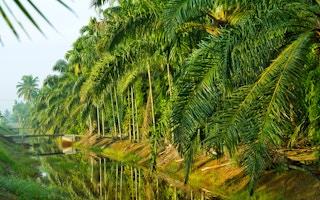The Sabah Forestry Department has committed to test the High Carbon Stock plus (HCS+) methodology for sustainable oil palm development in six months following the release of the HCS+ study’s findings.
“We are very keen to pursue the offer from the Sabah Forestry Department which indicated that this would be very helpful for them.
“This shows that the state is very committed towards sustainable palm oil and a sustainable economy,” said Forum for the Future founder Director Jonathan Porritt.
He was speaking in a press conference after the launch of HCS+ here on Friday.
The HCS+ methodology offers the possibility of delivering oil palm development that protects all forests having an above-ground carbon stock for more than 75 tonnes per hectare, forest on peat and other organic soils.
The Sabah Forestry Department acknowledges that there are several similar initiatives and welcomes any proposal such as the HCS+ for trials as proof of concept in the state.
Porritt said some of the largest companies in the global supply chain had signed the Sustainable Palm Oil Manifesto, a commitment to set higher standards for sustainability.
“There are about 8 companies including IOI Corp Bhd, Kuala Lumpur Kepong Bhd (KLK), Musim Mas, Sime Darby Plantation and Unilever that have agreed to try the results of the study,” said Porritt.
Giving examples, he said Sime Darby had pledged to undertake trials for both the HCS+ and HCS approach methodologies concurrently in its operations in Liberia, while Musim Mas would try this in Papua Guinea.
The proposed trialling of HCS+ is also complementary with the current ongoing initiatives with Carnegie Airborne Observatory that includes the state-wide mapping exercise using light detection and ranging.
“This will help us identify places where conservation efforts can have the biggest impacts, as well as opportunities to improve land use practices to boost production on existing agricultural land,” he added.
The HCS+ study, which was funded by companies including IOI Corp, Sime Darby and KLK and conducted from November 2014 and concluded in December 2015, costs about RM12 million.










